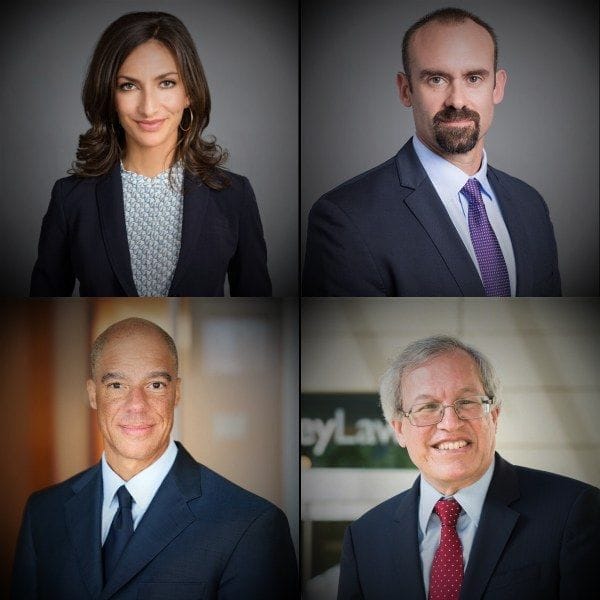USA v MRT: Two Competing Narratives (PART 1)

CD10Voices.com Editor’s Note: In anticipation of Thursday’s oral argument before the three judge panel of the Ninth Circuit Court of Appeals in Pasadena, we have prepared a three part series that will provide background on the USA v MRT bribery case.
The United States of America versus Mark Ridley-Thomas (USA v MRT) presents a clash of two competing and very different narratives.
According to government prosecutors in the United States Attorney’s Office (USAO), Mark Ridley-Thomas is an arrogant and ambitious professional politician and shakedown artist. As a Los Angeles County Supervisor, he used the power and influence, accumulated during decades in elected office to “monetize” his position by selling his vote and influence for his own personal financial benefit.
Prosecutors contend that over the course of a year from mid-2017 to mid-2018, Ridley-Thomas master minded a conspiracy to fraudulently secure and obtain bribes by exchanging his support for “lucrative County contracts” on behalf of USC’s School of Social Work in order to extract benefits from the school’s dean for himself and his adult son, former California State Assembly Member Sebastian Ridley-Thomas. MRT sought to preserve his “brand” and reputation in advance of a potential Los Angeles City mayoral bid by landing a position of esteem for his son, who was facing sexual harassment complaints that led to his mid-term resignation from the State Assembly seat held.
Prosecutors say MRT conspired with the dean to obtain specific bribes in the form of his son’s graduate school admission, tuition, adjunct professorship and the “secret funneling” through the School of Social Work of a $100,000 contribution that originated from a ballot committee controlled by MRT to a community non-profit think tank led by his son. The value to MRT of obtaining the tangible admission and related benefits was avoidance of “reputational harm” to the Ridley-Thomas brand. The “funneling” of the ballot committee funds, argue prosecutors, was intended to avoid “nepotistic optics.” To secure these benefits, MRT engaged in multiple instances of honest services mail and wire fraud. According to the prosecutors, these actions deprived MRT’s County constituents his disinterested vote on an extension of a pre-existing USC contract sought by USC. MRT’s actions violated federal bribery statutes and effectuated the bribery and conspiracy charges.
In contrast to this narrative, Mark Ridley-Thomas is a dedicated public servant, according to the appellate team. He used his experience, talent and unparalleled work ethic in ways beneficial to his multi-racial working class constituents, as well as the most vulnerable among us. MRT worked tirelessly to marshal public and private resources to address workforce development, mental health and medical care, transit and homelessness in his district and the broader County. He unapologetically used the power, influence and reputation he earned as a successful public policy advocate to deliver services for his constituents. These included the original 2016 service contract to fund innovative pre-Pandemic on-line mental health services for children in the care of the County Department of Children and Family Services developed by USC with MRT’s assistance and support. The 2018 contract extension he supported at the heart of the prosecution was an example of his servant leadership. The contract extension amendments expanded service delivery to other vulnerable populations using the unexpended balance in the original contract. It appropriated no new funding beyond the original budget obligation.
The defense maintains that his son’s interest in graduate school admission preceded any conspiracy to obtain bribes in the form of admission, tuition and employment. Trial court testimony revealed such offers were consistent with well-established precedent and practice at USC. Mark Ridley-Thomas’s commitment to support the contract extension also came months before the School of Social Work dean’s $100,000 sponsorship agreement of the community non-profit think tank— a think tank his son organized to poll Black voters in Los Angeles. The $100,000 that originated from the MRT-controlled ballot committee was legally made and duly reported under California law. Because there was no quid pro quo agreement to exchange support for the contract extension for the think tank sponsorship beforehand, the transaction was not a bribe. If anything, it was nothing more than a gratuity, a sponsorship that was mutually beneficial to both the school’s social work mission and the goals of a think tank being organized to survey Black community political and social policy preferences, many of which focus on social welfare. The transaction was that of an institutional constituent in Mark Ridley-Thomas’s district that was consistent with the collaborative efforts common between academic institutions, community non-profits, district stakeholders and elected officials.
We stand by the appellate team’s narrative. USA v MRT is no typical bribery case. MRT received no personal enrichment or financial benefit. The jury acquitted him on the charges related to his son’s admission, tuition and job. The appellate team’s narrative is far more accurate and illustrative of Dr. Mark Ridley-Thomas’s practice and servant leadership.
In the words of the late civil rights icon Rev. James M. Lawson, Jr., “This unique case has been waged against the legacy of leadership produced by the African American community, the benefits of which are not limited to Black people. In other words, this case is the by-product of a racist power structure designed to crush the transformative leadership Mark Ridley-Thomas embodies and we share….
“The Mark Ridley-Thomas we all know is an exceptionally well prepared servant leader—like him personally or not. No one familiar with his herculean efforts to empower Black people and other marginalized people can credibly refute this fact.”

